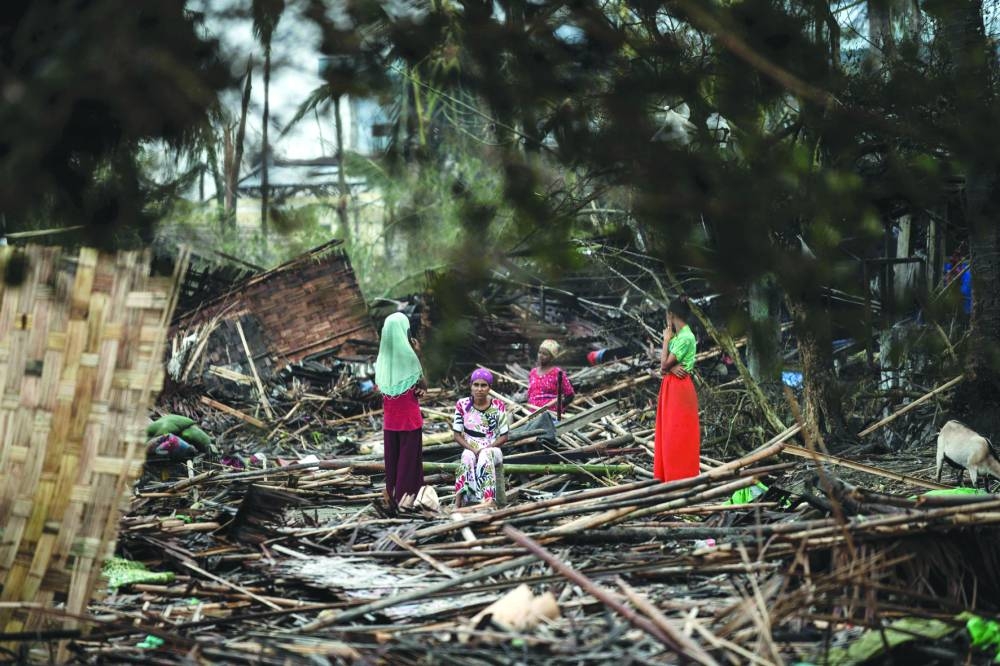Hundreds of people, including Rohingya Muslims, were feared dead after a cyclone struck Myanmar at the weekend, residents and aid groups said yesterday, with rescue efforts hampered by damage to infrastructure.
Myanmar’s impoverished Rakhine State bore the brunt of Cyclone Mocha, during which winds of up to 210kph ripped roofs off homes and brought a storm surge that inundated the state capital Sittwe.
The region has a large population of Rohingya Muslims, a persecuted minority that successive Myanmar governments have refused to recognise. More than a million live in sprawling camps in neighbouring Bangladesh, having fled military crackdowns in recent years.
Myanmar has been gripped by political and economic chaos since the military seized power in a coup in 2021. Since then, fighting has raged across the country between the military and pro-democracy or allied ethnic armed groups.
Residents of Rakhine State said at least 100 people had been killed and many more were missing and feared dead, adding that aid had yet to arrive. Bangladesh faced its worst power cuts in over seven months.
A resident in the area, who declined to be identified over concerns for his safety, said more than 100 Rohingya were killed, based on assessments from multiple villages he said he had visited in the aftermath.
Two other residents claimed a large number of people had been killed, as did a diplomatic source briefed on the situation, who did not provide details.
News portal Myanmar Now reported hundreds were feared dead, while aid groups said there were a “significant number of deaths”. Myanmar’s state media said three people were killed.
A spokesperson for the pro-democracy shadow National Unity Government said: “We received confirmation of about 400 Rohingya deaths, mainly around Sittwe area”.
The storm was one of the worst since Cyclone Nargis swept across parts of southern Myanmar killing nearly 140,000 people in 2008.
A UN official said 5.4mn people were expected to have been in the storm’s path, the majority of whom were considered vulnerable. “It’s really a nightmare scenario for the cyclone to hit areas with such deep pre-existing needs,” said Ramanathan Balakrishnan at the UN’s Office of Co-ordination of Humanitarian Affairs. Shelter, water, sanitation, and relief items were early priorities, he said.

Rohingya women sit and stand in their destroyed house at Basara refugee camp in Sittwe, Myanmar, on Tuesday, after Cyclone Mocha made landfall.
